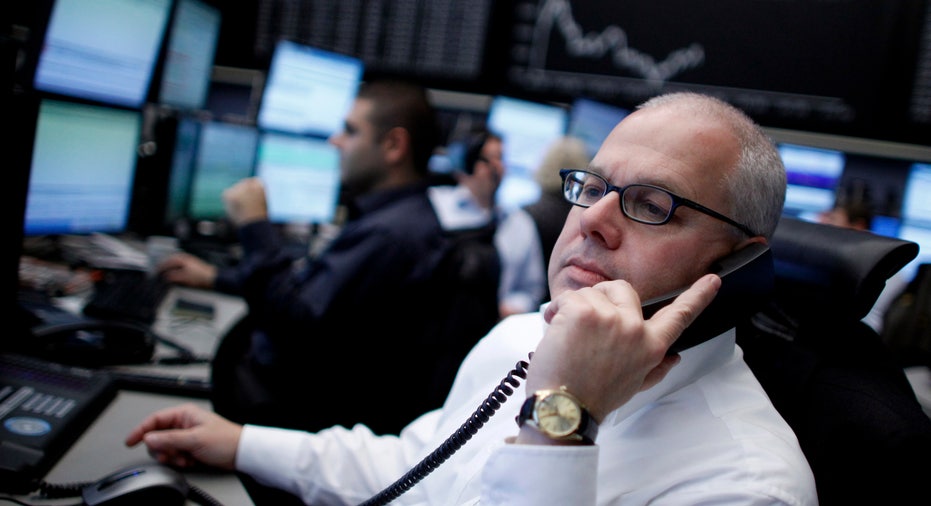Global Markets Tick Up; Busy Week Ahead

World shares gained and the dollar fell on Monday as investors counted on easy money from the U.S. and euro zone central banks to offset the risk of further disappointing global economic data.
However, the euro gained ground as some investors had second thoughts about whether the European Central Bank will cut interest rates on Thursday, a prospect that pushed the common currency down around 1.3 percent against the dollar last week.
"Last week it was all go, go go - everyone was factoring in a rate cut," said Sarah Hewin, senior economist at Standard Chartered Bank. "There's a bit of a reconsideration now, and a look at the reasons why the ECB may decide just to make no move."
A Reuters poll of 76 economists last Thursday showed only a narrow majority of 43 expected a 25 basis point cut at the ECB policy meeting, which would take its refinancing rate to a record low of 0.50 percent.
By mid-morning on Monday the euro was up 0.5 percent against a generally weaker dollar to $1.3095, though it remains well below a seven-week high of $1.3202 hit on April 16.
The dollar was also weaker against other major currencies, dropping 0.2 percent to 97.84 yen after disappointing first quarter U.S. data on Friday reaffirmed expectations the Federal Reserve will keep injecting cash into the economy.
The Fed is widely seen keeping its current pace of bond buying at $85 billion a month when the policy-setting Federal Open Market Committee announces its decision at 1815 GMT on Wednesday.
MSCI's world equity index was up 0.2 percent at 365.32 points, having gained 2.3 percent last week, although its moves were affected by holidays in Japan and China.
U.S. stocks index futures pointed to modest gains later on Wall Street at the start of another week of heavy corporate earnings results which will feature Pfizer, Facebook and General Motors.
The market is also on watch for several readings on U.S. manufacturing activity and the influential nonfarm payrolls report.
ITALIAN RELIEF
In Europe, a resolution of Italy's two-month political stalemate through the formation of a new coalition government at the weekend boosted sentiment on the bonds of heavily-indebted euro zone governments and the share market.
Italy's five- and 10-year borrowing costs fell to their lowest level since October 2010 at a bond sale on Monday, while secondary market yields dropped 10 basis points to 3.97 percent.
"Italian sovereign debt is benefiting from the twin effects of central bank liquidity support and political stability of sorts," Nicholas Spiro, managing director of London-based consultancy Spiro Sovereign Strategy, said.
The main Italian share index, the FTSE MIB, added 1.3 percent, helping to lift the broad FTSE Eurofirst 300 index of top European shares by 0.15 percent and adding to its 3.7 percent gain last week.
The market saw little reaction to data showing confidence in the euro zone's economy falling for a second straight month in April, which only added to poor German business confidence data revealed last week.
Germany's DAX was up 0.4 percent after the data while France's CAC 40 was 0.7 percent higher.
GROWTH CLOUDS
The uncertain outlook for economic growth, especially in the world's two big oil consumers, the United States and China, kept crude prices under pressure, although gold rose 1 percent as its recovery from recent lows continued.
Brent crude slipped 7 cents to $103.09 a barrel, after making its biggest weekly gain since November last week despite data showing the U.S. economy grew less than expected in the first quarter. U.S. oil was up 35 cents at $92.73 a barrel.
"Disappointing GDP data for the United States has raised concerns about the level of oil demand and led to some profit-taking after recent big gains," said Carsten Fritsch, senior oil analyst at Commerzbank in Frankfurt.
Gold futures, which often provide trading cues to cash gold, hit $1,472.20 an ounce before settling at $1,469 an ounce, up $16. Spot gold rose $6 to $1,470 an ounce.
The precious metal has enjoyed steady demand from buyers seeking the physical asset since it plunged to a two-year low of $1,321 on April 16, led by investors switching out of exchange-traded funds that hold gold and issue securities against it.



















